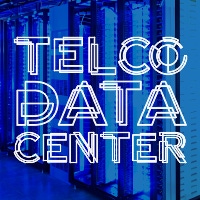Partners develop data center system targeted at telcos in a bid to replace commercial off-the-shelf storage and computing platforms.
March 5, 2015

BARCELONA -- Mobile World Congress 2015 -- Ericsson and Intel have teamed up to develop a data center system designed specifically for telcos looking to deploy modular, high-performance systems to support their cloud strategies.
Ericsson AB (Nasdaq: ERIC) CEO Hans Vestberg asserted here this week that the Hyperscale Datacenter System (HDS) 8000, developed in partnership with Intel Corp. (Nasdaq: INTC) and based on the chip giant's Rack Scale Architecture, will offer telcos the same kind of functionality as cloud-based providers, many of which, he noted, "develop their own data center gear." (See Ericsson CEO Talks Telco Data Center Tech.)
The Swedish vendor will deploy the product, which boasts integrated security, capacity utilization and applications management tools, in its three main international data centers and pitch it to network operators investing in cloud platforms, said Vestberg.
Intel CEO Brian Krzanich was also on hand to talk up the new product, though he offered little detail. He noted mainly that Intel and Ericsson together are aiming to transform the cloud and enable "the faster deployment of cloud services and lower total cost of ownership (TCO) of anyone in the cloud."
Figure 1: The Market Could Be This Big  Intel CEO Brian Krzanich talked up the prospects for the HDS 8000 during a presentation at giant Ericsson MWC village.
Intel CEO Brian Krzanich talked up the prospects for the HDS 8000 during a presentation at giant Ericsson MWC village.
The unveiling, one of a dizzying range of announcements made by Ericsson this week, comes as operators continue to invest in data center capacity and figure how those assets can tie in to their cloud, network functions virtualization and SDN strategies. (See New CenturyLink CTO in Major Overhaul, Deutsche Telekom Turns On Pan-European IP, NTT Making Aggressive Data Center Push and Zayo Splashes $675M on Latisys Data Centers.)
So is this totally new ground for Ericsson, a telecom networking and professional services specialist that is now trying to pitch itself as a cloud infrastructure developer and supplier?
Not quite. To support the telco sector's early NFV movers, Ericsson already has a blade server platform, a "very big switch with lots of CPUs" that is NEBS compliant, says Jason Hoffman, head of cloud technology at Ericsson.
The HDS 8000 is a storage unit with a lot of CPUs and optical interconnect (to better enable the product to pool and share its resources). It is not NEBS compliant and has been designed specifically for data center deployment.
Compared with generic commercial off-the-shelf (COTS) storage platforms, this is 200% to 300% more cost-efficient, claims the Ericsson man. "We wanted to come up with something that is disruptive to COTS. This is networking, storage and compute all in one device."
According to Hoffman, the key feature of the product, which will become commercially available most likely in November, is that it boasts component-based lifecycle management, which is a fancy way of saying it's easy to swap out elements of the platform to upgrade on a case-by-case basis. "We're looking to break the refresh cycle," says the Ericsson executive.
Figure 2: The HDS 8000 Live!  "And I put my socks in this drawer..."
"And I put my socks in this drawer..."
The product is, in effect, a large lego-like construction where each piece can be replaced. "This means it never has to be a legacy system," over the course of a few years it could be completely replaced, bit by bit as improved components replace existing ones.
For all of our Mobile World Congress 2015 coverage, check out the dedicated MWC show news channel here at Light Reading.
The immediate pitch is to the telco market, where, importantly, Ericsson has many existing relationships and a deep level of understanding of the procurement process, which COTS platform suppliers may not.
Hoffman says that lab tests are starting now with multiple (unidentified) operators and that there is interest from the web services sector (again no names provided).
He also says that, in terms of chip vendor alliances, it's "pretty much with Intel just now," but that would "not prevent us working with ARM Ltd. , for example."
— Ray Le Maistre, 

 , Editor-in-Chief, Light Reading
, Editor-in-Chief, Light Reading
You May Also Like









